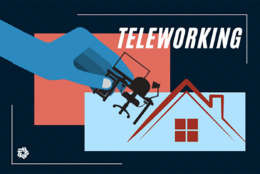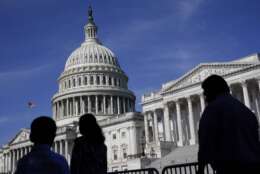Workforce Rights/Governance
-
Attorneys for a former letter carrier are telling the Supreme Court the Postal Service didn’t go far enough to accommodate his religious beliefs when it scheduled him to work Sundays.
April 18, 2023 -
The Uniformed Services Employment and Reemployment Rights Act, known as USERRA, protects service members and veterans from discrimination because of their service. Now the Merit Systems Protection Board has clarified some of the rights under USERRA.
April 12, 2023 -
A persistent problem for the federal Bureau of Prisons is the rate at which former convicts come back. 45% of released inmates end up re-arrested within three years.
April 05, 2023 -
The Office of Personnel Management uses International Transgender Day of Visibility as an opportunity to update agency guidance to manage gender identity inclusion in the federal workplace.
March 31, 2023 -
Federal agencies "overwhelmingly" see a lack of trust from employees in agency leadership to come to the table in good faith when resolving workplace disputes, the Equal Employment Opportunity Commission found in its latest report.
March 29, 2023 -
Equal employment opportunity disputes still occur in federal agencies. People feel wrongly discriminated against or they really are discriminated against for the wrong reasons.
March 28, 2023 -
In today's Federal Newscast: A policy change dramatically boosts workers' comp acceptance rates for federal firefighters with heart problems and certain cancers. The Veterans Benefits Administration continues its hiring spree to handle a record workload. And HUD's Inspector General has her sights set on environmental justice.
March 22, 2023 -
In today's Federal Newscast: OPM gives agencies an extension to waive certain leave policies for essential federal workers. The Defense Department has started a new working group to implement its suicide prevention policies. And comments on a new shared services framework are due this week.
March 20, 2023 -
DoD has about 15,000 people completely dedicated to finding and recruiting future members of the military. For its civilian workforce, there are almost none.
March 20, 2023 -
In a recent decision, the Merit Systems Protection Board confirmed that people are covered by the Whistleblower Protection Act, even if they blew the whistle before applying for a federal job. The board disagreed with a federal court, but upheld the board's own precedent.
March 16, 2023 -
The House Oversight and Accountability Committee pressed Office of Personnel Management Director Kiran Ahuja on federal telework, hiring process reforms, the Federal Employees Health Benefits Program, the retirement case backlog and much more.
March 10, 2023 -
Critics of telework often point to its limitations on collaboration. Video meetings have replaced the conference table for millions of teleworkers, but they can be annoying. Earlier, Tom Temin spoke with the D.C. deputy mayor, who outlined why the city wants federal employees to come back or have the government let go of some of its real estate.
March 09, 2023 -
The Mayor of the District of Columbia recently urged the federal government to get its people back in their offices or give up millions of square feet. The city has ambitious economic goals that could, in its view, make better use of the space.
March 09, 2023 -
The Office of Personnel Management launches a five-pronged strategy aiming to help agencies better adapt to the increasing prevalence of hybrid work for the federal workforce.
March 08, 2023 -
A host of bills lawmakers reintroduced this week would impact retirement savings for federal fighters and federal law enforcement officers, as well as offer feds a grace period for payment obligations during a government shutdown or debt default.
March 03, 2023













